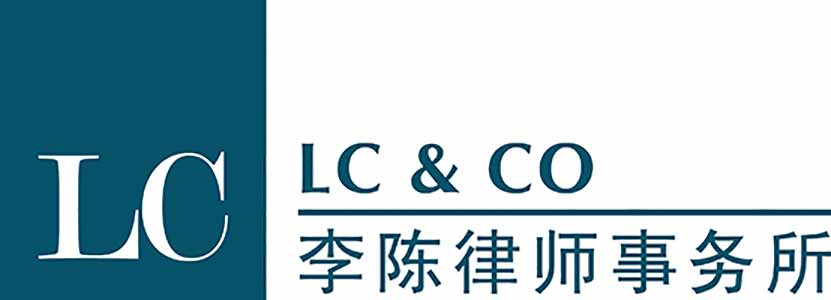The Rules of the Supreme People’s Court on Several Issues Regarding the Application of Laws in Hearing Cases Involving the Delivery of Goods Without Original Bills of Lading became effective on 5 March 2009. The rules have established a set of standardized tests concerning cases involving the release of goods without an original bill of lading.
Cause of action
The rules provide that in a dispute over the delivery of goods without a bill of lading, the holder of the original bill of lading may hold the carrier liable under the law of contract or tort, or require a party who takes delivery of goods without the original bill of lading to assume tortious liability.

Partner
LC & Co
Claimant and defendant
The rules provide that the holders of original bills of lading have the right to lodge claims for the release of goods without a bill of lading. In addition, a consignor who delivers goods to a carrier and holds an order bill of lading, though not stated as consignor, may still hold the carrier liable for the unlawful delivery.
The rules do not touch upon whether, in the same circumstances, a consignor under a straight bill of lading has the same right.
The defendants to be held liable for the unlawful delivery are the carrier and the actual consignee, whom the holder of the original bill of lading may sue for joint and several liability.
Scope of indemnity
Article 6 of the rules provides that the amount of indemnity claimed against the release of goods without a bill of lading shall be calculated on the basis of the “value of goods at the time such goods were shipped plus freight and insurance premiums”. The loss from any tax rebate on the export of goods is not recoverable. Article 56 of the PRC Maritime Law on the limitation of liability for indemnity shall not apply.

Lawyer
LC & Co.
Grounds for exemption
Articles 6 to 10 of the rules exempt a carrier who has released goods without an original a bill of lading from indemnity liability if:
- the carrier surrenders the goods to the local customs or port authorities pursuant to the local laws of the port of discharge;
- the goods consigned to a port are not declared to the customs within the time limit prescribed by law and are disposed of by customs, or a court rules that the goods kept by the carrier be auctioned;
- the carrier has, at the request of the consignor in the straight bill of lading, suspended the transportation of the goods, returned the goods, changed the port of destination or delivered the goods to another consignee; or
- the carrier, having issued the original bill of lading in several counterparts, has delivered goods to the party who presented the original bill of lading first.
In previous cases, a carrier could also claim exemption from indemnity liability if the holder of the original bill of lading reached a repayment agreement with the actual consignee even after being aware that the carrier had released the goods without a bill of lading.
Some courts held that, by concluding such an agreement, the holder of the bill of lading de facto endorsed the carrier’s release of goods, and accordingly ruled that the carrier not be held liable.
In this respect, Article 13 of the rules provides that if the agreed payment was not made, the right of the holder of original bill of lading to claim against the carrier for the loss incurred shall not be prejudiced.
Limitation of actions
The limitation period for claims for the release of goods without a bill of lading is one year from the date on which a carrier should have delivered the goods, regardless of whether the action is based on tort or contract, or whether the action is instituted against the carrier alone or against both the carrier and the actual consignee.
The provisions of the rules on the interruption of limitation periods are in line with Article 267 of the PRC Maritime Law, which suggests the limitation period is interrupted by a claimant instituting proceedings or submitting the case for arbitration or a respondent agreeing to perform obligations.
Straight bill of lading
There has been much judicial controversy over whether a carrier under a straight bill of lading, who has released goods to the designated consignee not on the strength of the original bill of lading, should be held liable.
Articles 1 and 2 of the rules provide that straight bills of lading are similar to order bills of lading and open bills of lading in the sense that a carrier is required to deliver goods on the strength of original bill of lading, failing which the carrier should be held liable.
Non-Vessel Operating Common Carrier (NVOCC)
In some previous claims for unlawful deliveries, Chinese domestic freight forwarders acted for foreign carriers not qualified as China NVOCCs to receive goods, book the shipment of goods and issue bills of lading. The rules are silent on whether these domestic freight forwarders should be held jointly and severally liable together with the foreign carriers.
In practice, some courts have held that in the above circumstances, foreign NVOCCs were operating illegally, with their domestic freight forwarders being illegal agents.
Foreign connection
According to the stipulations of the PRC General Principles of Civil Law relating to agency, the freight forwarders should be held jointly and severally liable for indemnity together with the foreign carriers. However, the Shanghai Higher People’s Court believes that in delivering such a ruling, there is another prerequisite which is that the “freight forwarder has a high degree of connection with the foreign carrier”.
Li Feng is a partner at LC & Co.
Steven Zhou is a lawyer at LC & Co.
金鹰大厦B幢802A
Suite 802A, Building B
Jinying Mansion, 1518 Minsheng Road
Shanghai, China
邮编 Postal code: 200135
电话 Tel: +86 21 6104 2958
传真 Fax: +86 21 6104 2959
www.lclaw.cn
李 锋 Li Feng
电子信箱 E-mail: feng.li@lclaw.cn
周 垠 Steven Zhou
电子信箱 E-mail: steven.zhou@lclaw.cn






















